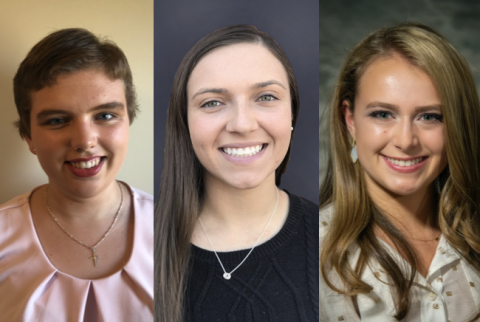Safer adaptive cruise control for traffic wave dampening
Audrey Vazzana (Rose-Hulman Institute of Technology)
Savannah Ball (Monmouth College)
Emily Baschab (University of Alabama)
The goal of this project is to develop an adaptive cruise controller for vehicles at low speeds in stop-and-go traffic. Current adaptive cruise controllers can use radar sensors to follow a vehicle ahead at high speeds (40+ mph), but reach their limits if the vehicle ahead must slow down or stop, requiring the driver to resume control over the car’s speed. Another issue with current adaptive cruise controllers is their lack of ability to steer the car, meaning that this task is still required of the driver. Very few cars have adaptive cruise controllers capable of control at speeds less than 18 miles per hour. Our cruise controller will be capable of following cars at low speeds, which will allow for the controller to remain in control in stop-and-go traffic. This project has the potential to interest automobile companies who could implement this technology in future models. If our technology were to be implemented in future automobiles, it would make driving a lot more convenient for drivers. This could also potentially reduce the number of traffic accidents as well as making drivers feel safer when navigating traffic. However, if errors were to occur, they could potentially put the car’s passengers at risk, as well as the passengers in nearby vehicles.
Technical Report: http://csl.arizona.edu/content/safer-adaptive-cruise-control-traffic-wav...

